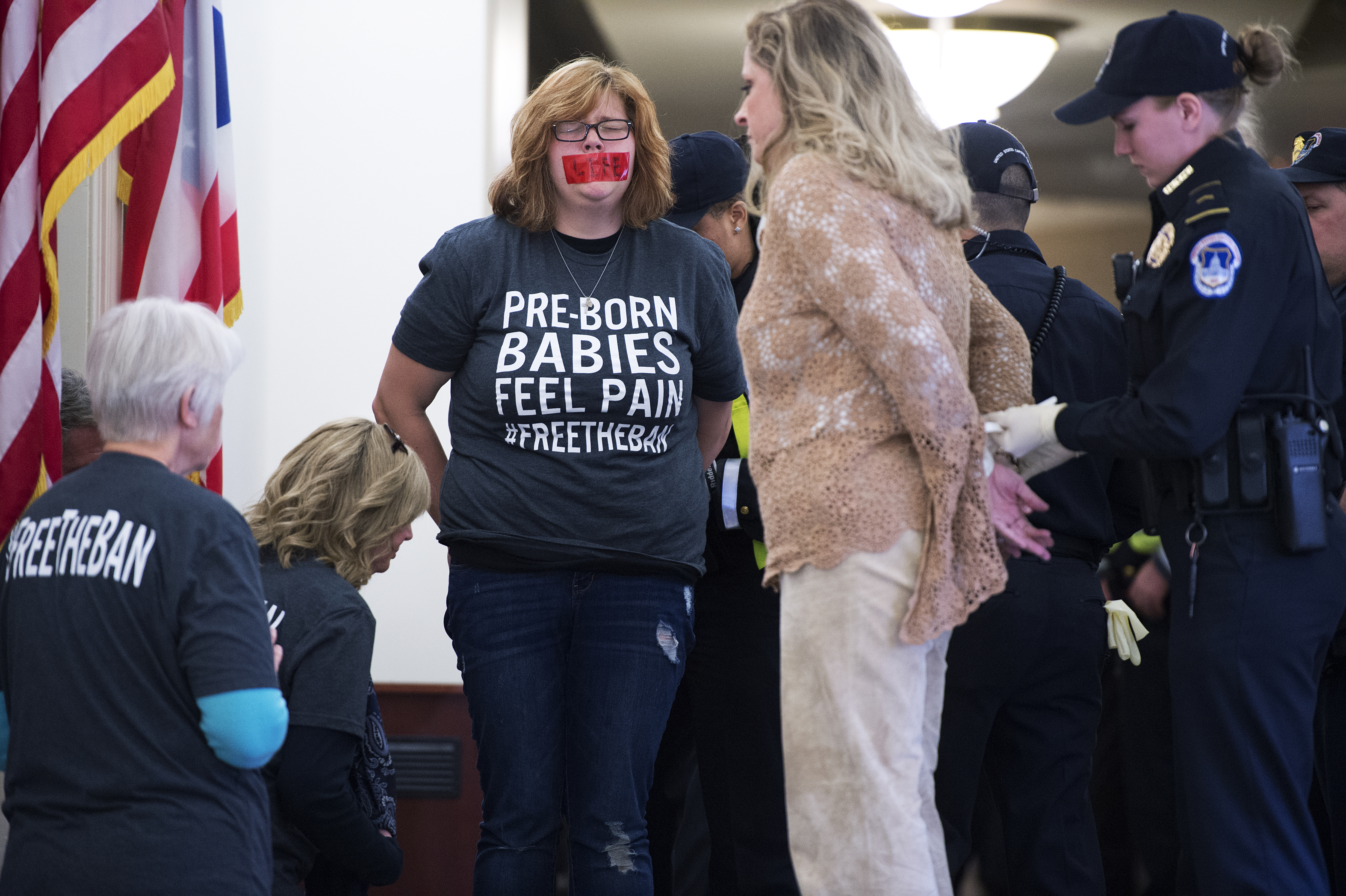Washington, D.C., officers discovered five fetuses inside the Capitol Hill home where an anti-abortion activist lives, police say.
Police went to 28-year-old Lauren Handy's basement apartment in the 400 block of 6th Street SE on Wednesday afternoon to investigate a tip about potential bio-hazard material at the house, the Metropolitan Police Department said in a statement.
The medical examiner's office collected the fetuses, and police are investigating, the department told News4. No further information was available about the fetuses, including where they came from.
We've got the news you need to know to start your day. Sign up for the First & 4Most morning newsletter — delivered to your inbox daily. Sign up here.
“My initial reaction is it’s horrifying to hear that there are fetuses in someone’s house,” a neighbor told News4.
Handy is one of nine anti-abortion activists who were charged Wednesday with federal civil rights offenses after they blocked access to a reproductive health center and streamed it on Facebook, federal prosecutors said.
The charges include violations of a federal law known as the Freedom of Access to Clinic Entrances Act, or the FACE Act, which prohibits physically obstructing or using the threat of force to intimidate or interfere with a person seeking reproductive health services. The law also prohibits damaging property at abortion clinics and other reproductive health centers.
The nine – Handy, and Jonathan Darnel, 40, of Virginia; Jay Smith, 32, and John Hinshaw, 67, and William Goodman, 52, of New York; Joan Bell, 73, of New Jersey; Paulette Harlow, 73, Jean Marshall, 72, of Massachusetts; and Heather Idoni, 61, of Michigan – also face a charge of conspiracy against rights.
Prosecutors allege the group “engaged in a conspiracy to create a blockade at the reproductive health care clinic.” It was unclear, from court papers, how they met.
In court documents, prosecutors say Handy called the clinic pretending to be a prospective patient and scheduling an appointment. Once there, on Oct. 22, 2020, Darnel started a live feed on Facebook as the rest of the group lined up outside the clinic, the indictment says.
When a worker opened the door for patients, eight of the suspects pushed their way inside and began blocking the doors, and five of them chained themselves together on chairs to block the treatment area, according to court papers. Others blocked the employee entrance to stop other patients from coming inside, while another suspect blocked people from coming into the waiting room, the indictment states.
Darnel was broadcasting the blockade on Facebook and at one point said during the video, “(T)he rescuers are doing their job. They’re not allowing women to enter the abortion clinic. As long as they’re in there, no women can go in to kill their children,” according to the indictment.
It was not immediately clear if the defendants have attorneys who could comment on the allegations. If convicted, they each face up to a maximum of 11 years in prison.



